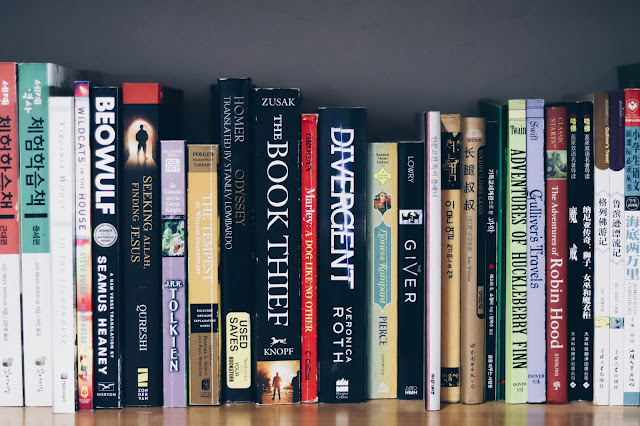Let's Read Hard Texts!
Whenever the teacher in English class assigns the students to read a difficult text, for example, To The Lighthouse—one of the most confusing books students comes across, they start skimming through the book quickly as they could; and at the end of the book, they panic for not understanding what they just read.
We often fear those incomprehensible books and attempt to stay away from them as far as possible; when we fail to understand the text we start blaming ourselves for not being smart enough to understand it by reading it only once. However, we need to realize and accept that getting confused by the text is okay and we cannot avoid reading those books forever. If we continually avoid these books, we miss out various beautiful details in the writings. Then how should we prepare and read in order to conquer these intimidating texts and find the beauty within?
As bakers need to know what they bake before baking and prepare all their ingredients and supplies to avoid confusion during the process, so should readers. Sometimes, bakers would fail in trying out a new recipe; and when they fail, they go through the recipe again and again until they get the perfect cake. Before start reading the book, we need to understand that we might not comprehend the book in the first reading, so we must prepare ourselves for the confusions we will face.
To come prepared for reading complex texts, we need to warm up ourselves by reviewing materials the teacher provided to contextualize the difficult text, just as how the chef reviews the recipe before cooking. After we understand the story frame, we need to minimize the distractions for our minds surroundings and prepare to read.
In contrast to what the majority thinks, pop music and even classics increase distraction rather than increasing concentration, so do those comfortable reading couches and pillow nests. Instead, we need white noise or no music at all and sit in front of the desk with pens, notebooks, and post-its. Now that we have equipped ourselves, we need to start digging into the book.
Since we prepared everything, we just need to sit down and finish the book right? Well, not quite. While reading, students can easily read through the book using a robot voice instead of active reading and actually comprehending the text. To avoid reading the book in vain and wasting time, we need to stay on track and ensure that we comprehend what we read.
When reading the text, chart out the characters on the notebook and write down things you discover about the characters, take notes on themes, and summarize each chapter in a few sentences; these methods come helpful and assure that we understood what happens in the text. However, even with these hard efforts, we can feel lost in reading and feel confused. In this case, we need to pause and recognize that we stopped comprehending the text.
A few clues that show we stopped comprehending the text includes: stopped asking questions about the text, started thinking about other thoughts rather than the text, forgetting what we read previously, unable to visualize the events, and unable to remember the characters. After recognizing that we do not understand the text, we need to go back and re-read the text and take notes again to fully understand what we read.
Reading difficult texts requires more than just reading, it needs thorough preparing, constant note taking, and comprehending the text. Students might wonder, “What’s the point of spending all these energy, time, and following all these steps to read these hard books while we could easily find a simple version?” Indeed, reading complicated books distress students, however, delicate writings are often the ones we cannot comprehend easily. Writers had written them for those who would take the time and effort to understand and appreciate their elaborated works. These texts have a similar characteristic to geodes, it takes an extreme amount of effort to understand what the writer tries to tell, but when we finally understand the text, the astonishing crystals underneath would surprise us and opens up an entirely new world for us to discover and ponder about.





Comments
Post a Comment